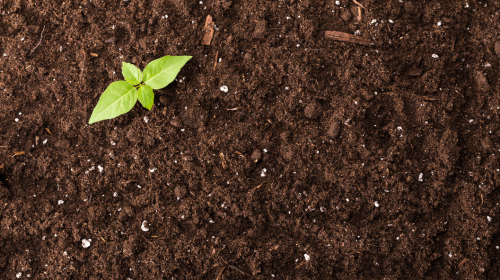
10 November 2023
Members of the House of Lords have criticised the government’s approach to ensuring the future of sustainable horticulture in the UK. The committee have highlighted how there seems to be no plan for reducing the environmental impact of the sector, and point to soil degradation as a key threat to the £5bn industry. They urge ministers to prioritise updating the National Action Plan for pesticide use, and reintroduce the Soil Health Action Plan which would name soil as an area of priority alongside air and water.
The King made his first speech to open the Parliamentary term, which has been widely criticised for lacking ambition on environmental issues and for underpinning Rishi Sunak’s recent reversal of key Net Zero policy. This came as a blow to environmental groups who hoped to see better representation for nature, biodiversity and climate, especially as scientists warn 2023 looks set to be the hottest year on record.
The United Nations Food Agriculture Organisation (FAO) has published a report which demonstrates that the hidden cost of a flawed global food system is costing $10 trillion per year. It urges policy makers to factor in true costs when making policy decisions, and points to the role of degradation of the natural environment, including soil degradation, in adding to this figure.
The Environment Agency has announced its ‘Big Soil Stocktake’ for England during a speech at the Eden Project. The project aims to establish better access to and transparency around soils data, alongside a new Natural Capital Ecosystem Assessment (NCEA) programme which will baseline soil health. The Environment Agency have asked for collaboration on the project and are looking for a partner from outside government to feed into the scheme.
The Agri-food and Biosciences Institute have held a soil conference in Northern Ireland, highlighting the latest soil focused science and research. Attended by over 200 people from policy, academia and industry, topics covered both local and global soil legislation, soil nutrient management and soil health measurement.
New research has shown that UK forest ecosystems are at risk of collapse within 50 years unless action is taken. Risks from extreme weather and wildfires are seeing tree populations declining, and among numerous recommendations for reversing decline, scientists pointed to improving soil health as a priority to protect ecosystems.
Campaigning organisation Fighting Dirty is taking legal action against the government over an abandoned pledge to reduce the use of chemicals which are being washed into waterways. They have highlighted the high level of microplastics in UK soils, which can potentially enter the food chain and say that by failing to update rules around sewage, the government are in breach of their legal obligations on protection.
An article has discussed the negative impact of wildfires on floods in Italy. It shows how fires can make soils more fragile, heighten risk of erosion and exposure to pathogens and pests. It describes how fires seal the top layer of soil, meaning it can’t absorb water and therefore worsens floods and increase landslides.